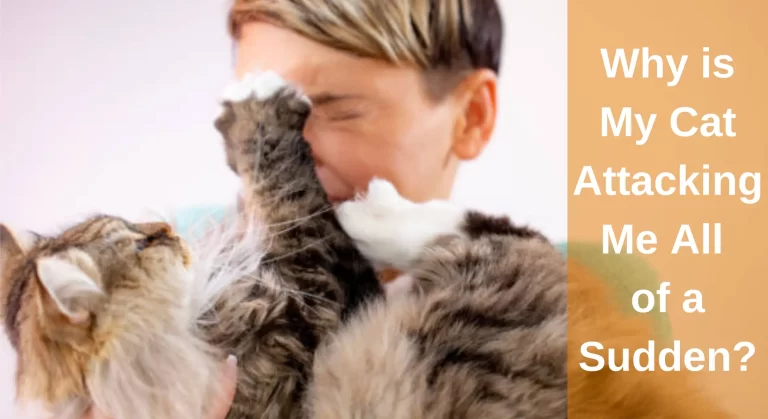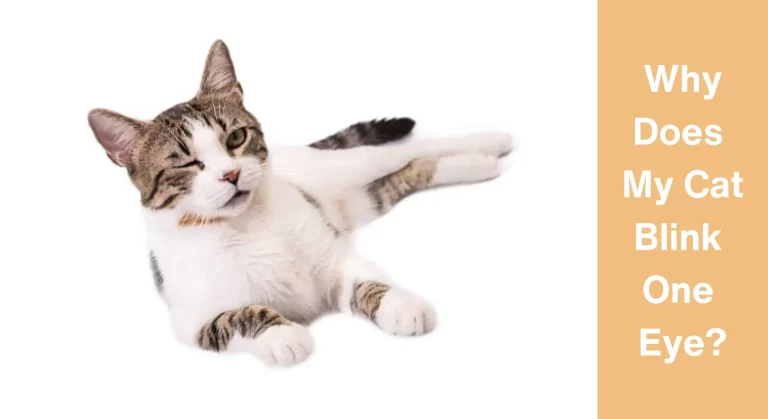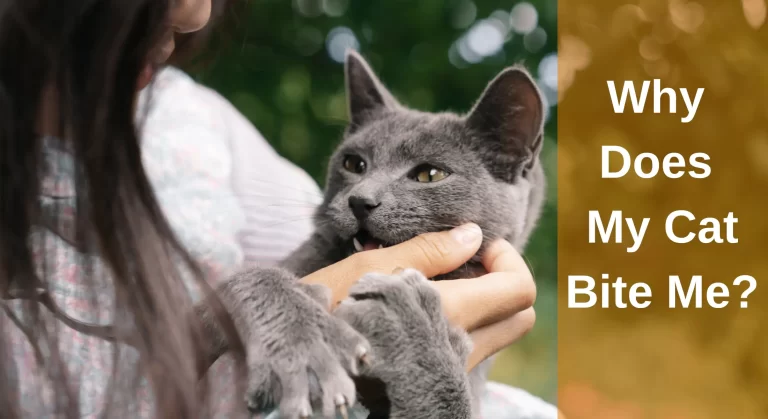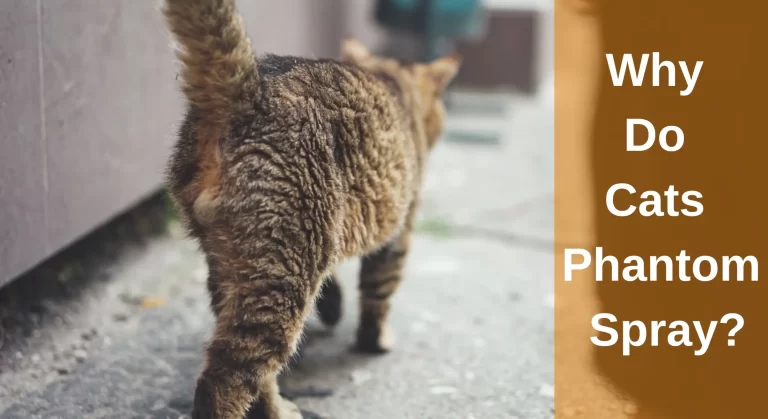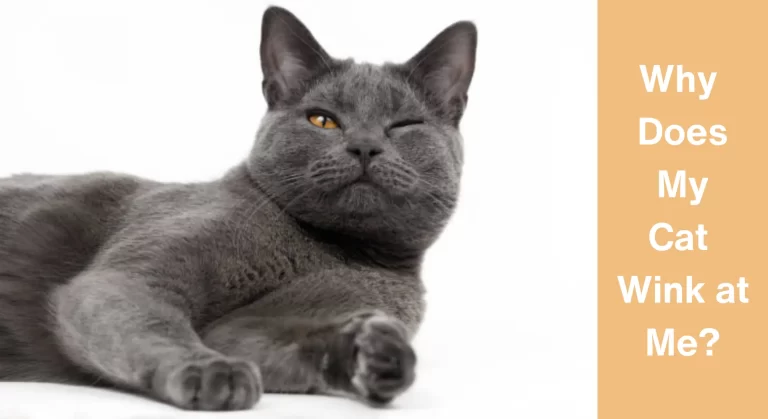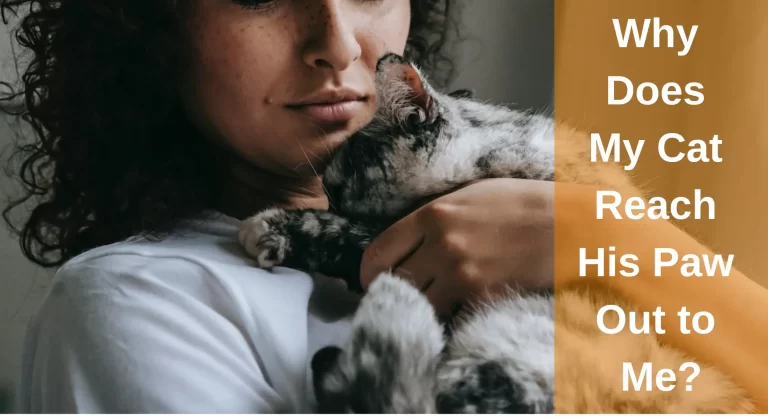Why Does My Cat Clean Herself After I Pet Her?
We will never fully understand cat behavior, but its many mysteries will put us on our feet. One of these cat’s behavior includes cat grooming after you pet them. Most cat owners become confused and ask: why does my cat lick herself when I pet her?
Felines lick and clean themselves when you finish petting them because they’re very conscious of their hygiene. Moreover, it might be possible that they’re having skin problems, you pet the wrong spot, or they may not enjoy your petting. Also, they can lick themselves to remove the dirt or scent of your hands.
Actually, there may be several reasons for your feline’s actions. You’ve to get a deeper knowledge of Why Does My Cat Clean Herself After I Pet Her. So, in this post, I’ll discuss all these causes in depth that will help you to know your cat’s behavior. Continue reading to know why your feline licks itself, whether she’s stopping you from doing this, or whether it needs a visit to the veterinary clinic.
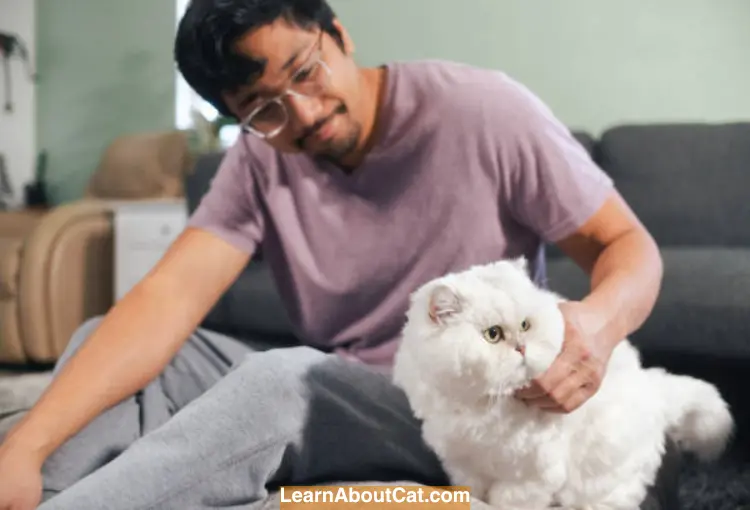
Reasons Why Does My Cat Clean Herself After I Pet Her
When cats receive strokes and pet attention from their owners, they lick themselves or even the air. Let’s investigate the reasons that urge cats to do this behavior:
1. Grooming
Sometimes when you petted your feline, he may normally be grooming himself after you stop petting him because it’s his grooming time. Felines groom themselves for approximately half a day. They lick themselves for a variety of health benefits, including maintaining homeostasis, blood stimulation, and avoidance behavior when they are feeling ashamed or nervous, in addition to keeping themselves clean.
Your cats might get comfort in your caressing, but if you disrupted their grooming routine, they will find it necessary to clean themselves afterward. Grooming isn’t just a natural way to encourage hygiene, but it also calms them.
2. Petting A Difficult-To-Reach Area
Another explanation why your cat may begin licking itself after you pet her is if you petted a difficult-to-reach area. Although felines are incredibly versatile, they also have their boundaries. For instance, most felines find it challenging to reach the bottom of their tail or the rear neck area. This difficulty increases if your feline is wounded, obese, or too elderly.
Your cat’s natural desire to groom certain difficult-to-touch regions may be triggered if you stroke those areas. Your cat may continue to lick the air or brush other regions of its body that can be easily accessible since it can’t get to the area it desires to lick.
3. Your Cat Isn’t Interested in Being Petted
Your feline may occasionally start licking itself as it prefers not to be touched, which might be an insult to you. It’s feasible that this only affects a certain area of your cat’s body, however, it is possible that your cat doesn’t like when you touch it.
Your cat may refuse to be patted occasionally if they are sexually aroused. When you repeatedly rub the same place for a prolonged time, your feline may become violent. Cats frequently use distraction grooming to improve their mood when they’re sexually aroused.
Check Out: Why Does My Cat Bite Me When I Pet Her?
4. Irritating Skin Problems
This is the more severe explanation for your cat’s post-pet licking: your feline may have itching on its skin. Numerous factors can cause itchy skin issues, among which are particularly typical in cats, like insects, lice, and allergens.
Your contact makes your cat’s skin hurt or just makes it uncomfortable and bothersome will determine how strongly your feline reacts to your caressing. Your pet will probably begin licking to stop itching. Your petting, though, could also make your cat recoil or behave violently toward you if it is experiencing discomfort.
Schedule a visit with your veterinarian to find out what’s wrong if your feline licks the same spot each time you pet it or acts like it’s experiencing discomfort. The majority of itchy skin diseases are readily treated, but you must always have a medical opinion!
Also, Check Out: Should I let My Cat Lick Its Wound?
5. Hyperesthesia Disorder
Hyperesthesia disorder is sometimes referred to as “twitchy cat illness.” Cats with this disease develop itchy skin. Furthermore, this indicates that your touching may trigger irritation or discomfort in your feline, which they attempt to alleviate by overgrooming.
Enlarged pupils, excess vocalizations, and unexpected hostility are the symptoms when a feline scream but desires to be caressed. All these are common signs of feline hyperesthesia you should watch out for.
I advise you to consult your veterinarian as immediately if you suspect your cat has hyperesthesia syndrome. Even though the issue might not first seem too significant, it can swiftly get worse. Due to their extreme skin irritation, felines are known to harm and even self-mutilate their tails in serious conditions.
6. They’re Removing Your Smell
Cats genuinely don’t like your fragrance on them. They must capture birds and pursue mice. They can be detected during hunting if they have a foul odor. Cats emit a unique odor that communicates without interacting with other scents. And we emit and leave traces of human scents without really realizing it.
Therefore, it is certainly obvious that your assistance is unwelcome if your feline starts grooming itself when you put them in the same area. Although if your feline doesn’t go hunting outside, it might just be a genetic reflex.
Moreover, when they’re out hunting it might be a chance that they’re recognized by human scent. So, in their minds, getting rid of your aroma from their skin is essential and makes them harder to find.
What To Do If Your Cat Licks Himself When You Pet Him?
If your cat licks himself when you pet him, it could be an indication of various factors. Here’s a detailed guide on what to do:
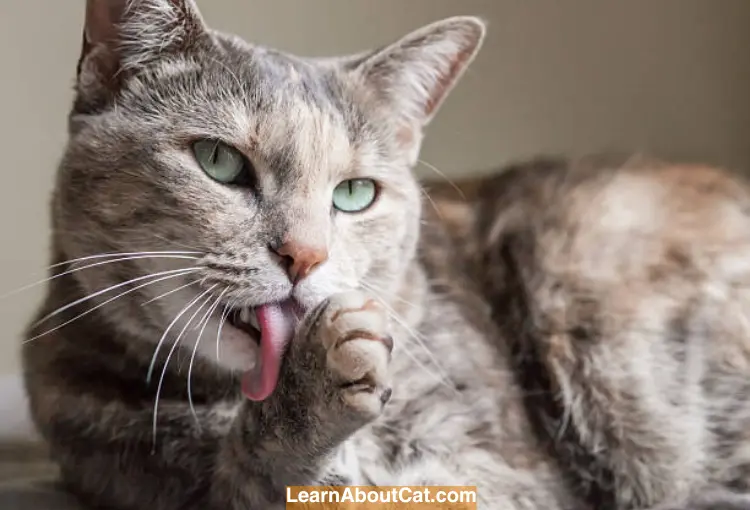
Observe and Assess: Pay close attention to your cat’s body language and behavior. When such behavior occurs, it’s crucial to assess your cat’s body posture. If your feline is happy when your petting caressing him, then you can continue to pet him. But if he appears unhappy, pulls away, or makes a bite-threatening motion, he definitely dislikes your petting.
Adjust Your Petting Technique: If the behavior only develops when you touch a specific location, think over whether your feline might not be able to lick this spot. If so, give him a regular brushing to make it tidy and pleasant for him. In order to protect your cat’s safety and prevent getting attacked or clawed, refrain from caressing any sections of his body where he appears to dislike petting.
Cats have sensitive skin, and some may be more prone to overstimulation. Opt for gentle and slow strokes, especially in areas your cat enjoys being petted. Avoid overstimulating sensitive areas like the belly or tail.
Consult a Veterinarian: You must call your vet to examine your cat for skin issues if he begins to lick himself or the air after receiving a touch or pet. Excessive licking or grooming could indicate an underlying medical issue, such as allergies, skin irritation, or pain. A vet can provide a proper diagnosis and recommend appropriate treatment.
Why Do Cats Clean Themselves After You Touch Them?
When you pet your feline, they clean itself to remove your odor from its coat. It’s likely that the area of your feline’s body that you’re petting is dirty or irritating since it escaped her rigorous grooming. This happens more in obese felines and most frequently in the tail top and rear areas.
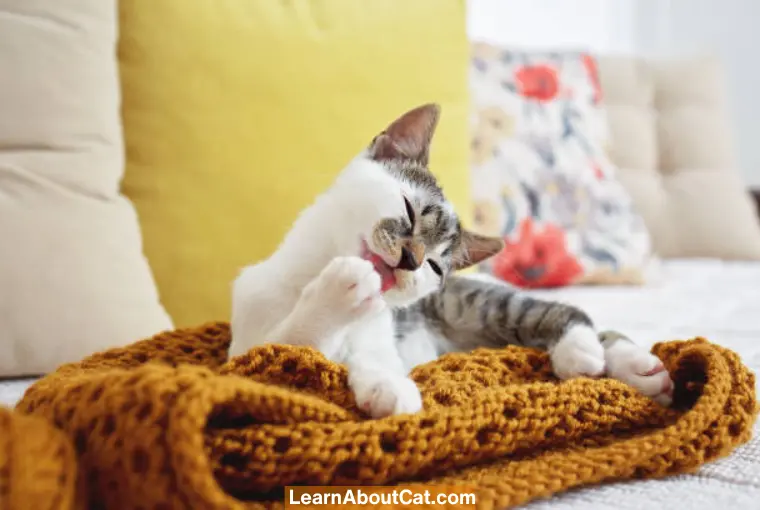
Incorporating Your Scent: When you pet your cat, you leave behind traces of your scent on her fur. Cats have a heightened sense of smell, and they’re naturally drawn to investigate new scents. By licking herself after being petted, your cat is engaging in a form of scent exploration, incorporating your scent into her own.
Enhancing Grooming Efficiency: Cats are meticulous groomers, and they take pride in maintaining their hygiene. When you pet your cat, you stimulate her grooming reflex, prompting her to continue her self-care routine. This ensures that she thoroughly cleans her fur, removing dirt, debris, and dead hair.
Sensory Overload and Self-Soothing: Some felines don’t like human touching and scratching. They could object to being stroked or just want certain areas of their body ignored. Moreover, some cats may suffer from hyperesthesia condition, which makes their skin extremely sensitive and irritating even for small scratches or petting.
Pal cats often do their grooming simultaneously. Your feline may lick itself or the air whenever you stroke her, which may be the reflex of mutual grooming.
Should I Pet My Cat While She’s Cleaning Herself?
It’s usually best to avoid petting your cat while she’s cleaning herself. Cats take grooming seriously, and interrupting this process can be disruptive and potentially lead to stress or discomfort.
Allow your cat to finish her grooming routine before offering affection to ensure she remains comfortable and undisturbed.
Why Do Cats Lick Themselves After You Kiss Them?
You may have seen your cat licking himself after you kiss him, it’s because they have scent glands in their saliva, so licking themselves after you kiss them may be a way of marking you as their own.
Sometimes they want to get rid of any smells you leave on them. This is done to ensure that when he hunts, their target is unable to smell them since they don’t have a smelling sense.
Cats may also repeat this licking behavior because they don’t always understand human kissing.
Also Read: Why Does My Cat Lick My Face?
Why Does My Cat Lick The Air When I Scratch Her?
When your cat licks the air while you scratch her, she’s exhibiting a behavior known as “air licking.” This intriguing action can have a few different explanations:
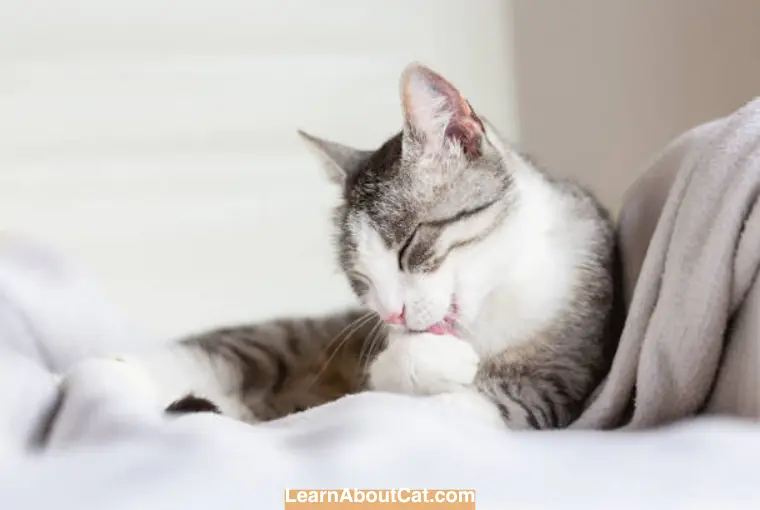
1. Sensory Stimulation: Scratching a cat’s favorite spots, especially around the neck and chin, can trigger a pleasurable response that leads to air licking. It’s almost like a reflexive reaction to the sensation.
2. Mimicking Grooming: Cats sometimes display air licking as a way to mimic their grooming behavior. Your scratching might trigger her to lick as if she’s grooming herself, even though you’re the one providing the stimulus.
3. Feline Hyperesthesia Syndrome (FHS): The greater you stroke your feline, the angrier he becomes, and his licking itself may turn into licking or biting at the air. At first glance, this behavior may seem funny, but it quickly becomes obvious that the feline is upset. The illness is known as feline hyperesthesia syndrome (FHS).
4. Contentment: Air licking could also be a sign of contentment and relaxation. Cats often display unusual behaviors when they’re in a comfortable and happy state.
Although the majority of the time your cat’s licking behavior is completely normal, it rarely can be a sign of a health issue that you need to treat.
A veterinarian or behaviorist may be needed if your cat starts to twitch, develops peeling skin on its tail, or displays other strange behaviors. A veterinarian can help your feline in lowering the stress they are experiencing.
Why Does My Cat Clean Herself While Cuddling?
When your cat cleans herself while cuddling, it’s a testament to her unique feline nature and the depth of her comfort with you. Cats have the remarkable ability to engage in multiple activities simultaneously.
While cuddling provides her with a sense of security and bonding, grooming remains an essential part of her routine to maintain hygiene and exhibit self-care. This behavior highlights her trust in your presence and her skillful balance between relaxation and personal upkeep.
Frequently Asked Questions
Why does my cat lick the spot I pet her?
Your feline may lick the areas where you pet because she might have some allergic issues in that region. Moreover, that spot might be hard to touch your feline or that area is hypersensitive which makes her lick it.
What does it mean when your cat grooms in front of you?
Your feline is expressing her love and happiness with you by grooming in front of you since felines only groom in those places where they’re comfortable and secure.
Why do cats lick themselves while playing?
Cats lick themselves during playing to clean the dirt or debris from their furs. It can also be possible that they lick themselves to remove sweat from their body and to cool down.
Do cats understand when you kiss them?
Kisses aren’t understood by felines in the same manner they are by humans. This is due to the distinct differences between how cats and people perceive and express feelings. While on the other hand, many felines are aware that a kiss is a method of expressing unconditional love, though. That’s why some cats enjoy being kissed, while others don’t.
Why does my cat bite the air when I pet her?
If you continue to pet your feline even if he dislikes your petting session, then he may show his aggression by biting the air. When your feline shows this behavior you must stop petting him otherwise you might get a scratch.
Conclusion
When you’re done petting your feline, it’s very normal for them to lick themselves. They can simply be engaging with you or doing their regular hygiene routines.
Your cat may be licking itself or grooming after you’ve petted a particularly difficult-to-reach place. Furthermore, your cat may also have hyperesthesia which makes your feline’s skin extremely sensitive.
Cats may become anxious or overstimulated when their licking is followed by other strange or violent behavior. If you see any unusual or altering behavior in your felines, I advise you to visit a vet to make sure your feline is fit and comfortable.
Related posts:
Who is Isabella?
My name is Isabella, and I am a dedicated and knowledgeable cat enthusiast. With years of experience caring for cats and a deep love for felines, I made a mission to help other cat lovers navigate the challenges of cat ownership.

